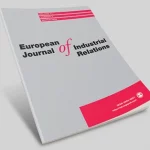Krešimir Jurlin published the article How Efficient and Socially Sensitive Are Fiscal Incentives for Electric Cars in Europe? in the special issue entitled Advances in Environmental Economics and Sustainable Development of the Journal of Risk and Financial Management.
Article abstract:
The main aim of the study was to analyse the impact of fiscal incentives on the share of electric passenger cars in total sales in 31 European countries in 2021 and 2022. Research included regression analysis of the impact of active subsidies, passive savings on fuel, as well as indicators of national wealth and the distribution of population by urbanization, on the share of electric vehicles in total sales. The most important finding of the research is that, in the countries under review, incentives are not well designed. For a saving of 1 ton of CO2 for business-owned plug-in hybrid electric sports utility vehicles (PHEV SUV), tax incentives stood at EUR 3,400, as compared to only EUR 106 for small battery-powered electric vehicles (BEV), with very high differences between countries. Applied panel data regressions with random effects indicated that active tax incentives had a rather low impact on the share of battery electric vehicles in total passenger car sales in 31 European countries, while the difference in electricity price over petrol price combined with the share of the population living in houses in towns and suburbs may be a rather strong stimulus for buying BEVs (R2 = 0.452 for the total sample and R2 = 0.579 for the reduced sample). However, national wealth between countries, measured by relative final consumption expenditure per capita, had the highest impact on the share of battery electric vehicles in total sales (R2 = 0.634). The study suggests that fiscal incentives for electricity-powered vehicles in Europe were too large, and neither well-designed nor directed towards less wealthy households.
The article is available at the following link: https://www.mdpi.com/1911-8074/16/6/283






